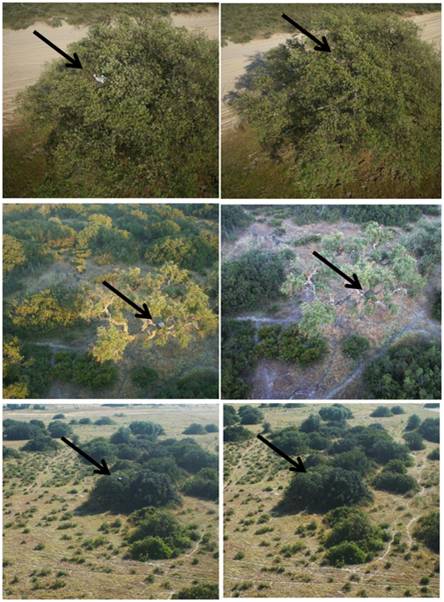Avian nests are frequently concealed or camouflaged, but a number of species builds noticeable nests or use conspicuous materials for nest decoration. In territorial species decorations may serve as extended phenotypic signaling of nest-site occupancy and social status to potential intruders. The latter may benefit both signaler and receiver by minimizing the risk of aggressive interactions. Here, it was tested whether nest decorations increased nest-site visibility to conspecifics in black kites (Milvus migrans), a territorial raptor that decorates its nest with white artificial materials. Unmanned aircraft system were used to take pictures of black kite nests, with and without an experimentally placed decoration, from different altitudes and distances simulating the perspective of a flying and approaching, prospecting intruder. Decorated nests were consistently detected by human volunteers at a higher frequency and a lower latency, compared to undecorated versions of the same nests. Results confirm that nest decoration in this species acts as a signaling medium that enhances nest visibility for aerial receivers, even at large distances. This finding complements previous work on this communication system, which showed that nest decoration was a threat informing trespassing conspecifics on the social dominance, territory quality and fighting capabilities of the signaler. informacion[at]ebd.csic.es Canal et al (2016) Decoration Increases the Conspicuousness of Raptor Nests. PLoS ONE 11(7): e0157440. Doi 10.1371/journal.pone.0157440
http://journals.plos.org/plosone/article?id=10.1371%2Fjournal.pone.0157440#








 Las altas temperaturas están provocando que las lagunas y las marismas de Doñana pierdan agua rápidamente
Las altas temperaturas están provocando que las lagunas y las marismas de Doñana pierdan agua rápidamente



